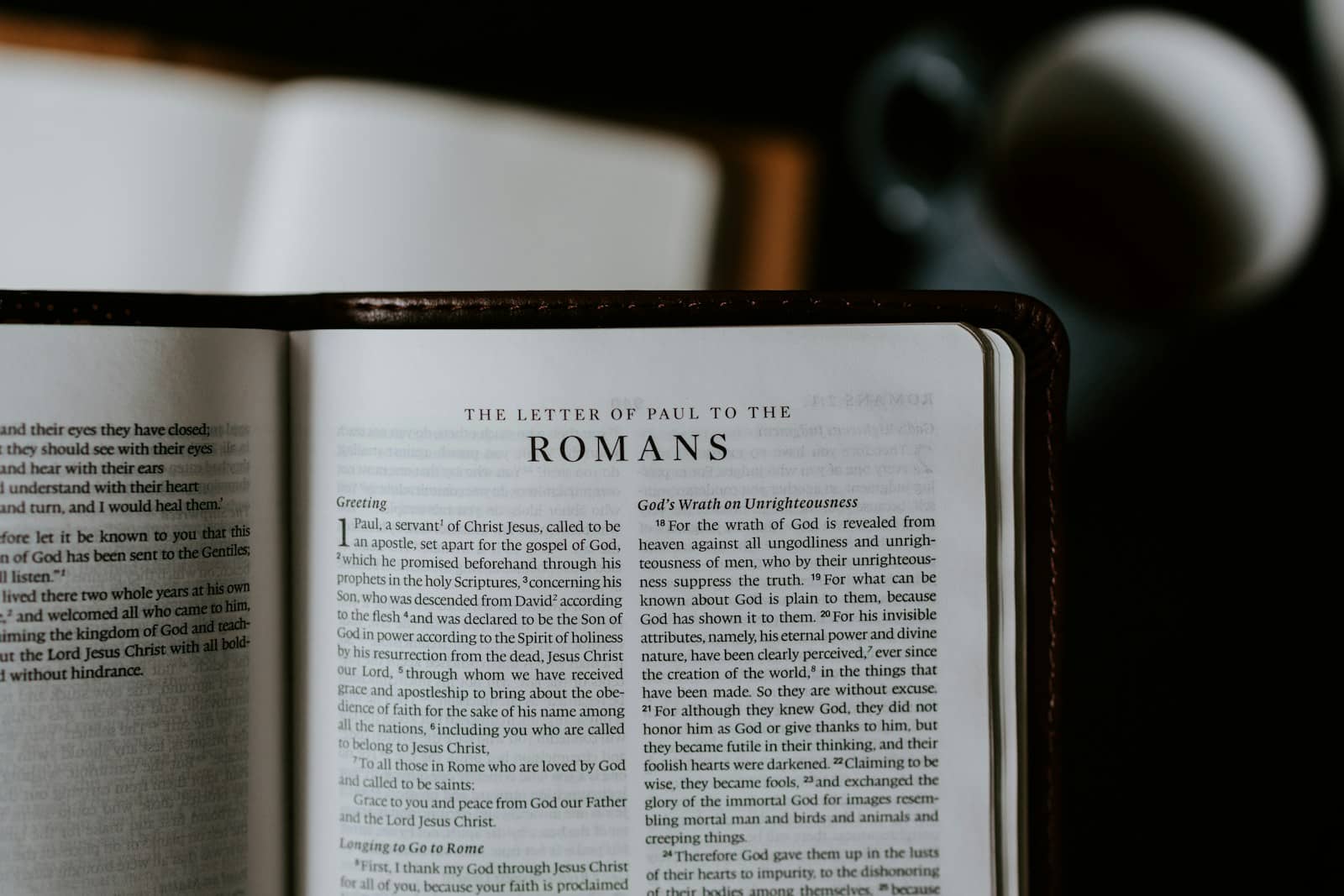“In a passage that rivals [Romans] 3:21–26 for theological importance, Paul paints with broad brush strokes a ‘bird’s-eye’ picture of the history of redemption. His canvas is human history, and the scope is universal.”1Douglas J. Moo, The Epistle to the Romans (New International Commentary on the New Testament; Grand Rapid: Eerdmans, 1996), 314.
“Adam’s sin has wrought great devastation in the world, and we all know that cleaning up a mess is harder than making one. The depth of Christ’s grace is revealed by the undoing of Adam’s sin, for grace would not shine as brilliantly if it did not involve the conquering and subduing of previously existing sin.”2Thomas R. Schreiner, Romans (Baker Exegetical Commentary on the New Testament; Grand Rapids: Baker, 1998), 285.
I love quotations like these two by Moo and Schreiner, both commenting on Romans 5:12–21. The first helps us understand that Romans 5:12–21 gives us a bird’s-eye view of the Bible, and the second zooms in on how Christ graciously cleans up sin and death in order to bring about our salvation. We could get wrapped up in debates about whether this passage teaches seminal or federal/representative headship (I understand it to teach the latter) or take our time to guard this passage from the heresy of universalism. However, as seen in the quotations above, this passage demands our attention and understanding due to its redemptive-historical scope and the brilliance of grace therein. As Christians, we should understand Romans 5:12–21 as best we can, and, having understood it, we should love our God all the more. In context, this passage strengthens our hope of eternal life.
Romans 5:1–11 speaks of the blessings of justification, and especially the blessing of our hope of eternal life (cf. Rom 5:2, 4–5, 9–10). Romans 5:12–21 grounds our hope further by explaining how “Adam . . . was a type of the one who was to come” (Rom 5:14). Briefly stated, eternal life is certain because God undoes humanity’s sin and death in Adam for those who receive his saving grace and the righteousness of Christ.
Explaining how Adam was a type of Christ, Paul compares and contrasts the two (Rom 5:12, 15–19). He also clarifies these matters in terms of before and after the Law (Rom 5:13–14, 20–21). The words just as, as, so, like, if, much more, all the more, as, and also tie these comparisons and contrasts together. The following describes these comparisons, contrasts, and clarifications, verse by verse.
Romans 5:12
Paul begins a comparison and contrast by speaking of Adam but does not complete this comparison until 5:18–19. Sin came into the world through one man who representatively sinned for all. As a result, death came to him and all mankind.
Romans 5:13–14
Paul clarifies that sin existed and death reigned from Adam to Moses, though the Law had not yet come to define sin for what it was.
Romans 5:15
Paul contrasts the free gift of Christ’s life with the trespass of Adam. Adam’s trespass brought death, but the life and death of Christ undid Adam’s sin and death and even abounded to give us righteousness and life.
Romans 5:16–17
In 5:16, Paul contrasts the results of the free gift of Christ’s righteous life and Adam’s sin. Adam’s sin brought condemnation, but Christ’s life (for those who receive it) brought justification. In 5:17, Paul elaborates this contrast. Death reigned because of Adam’s sin, but those who receive God’s grace and Christ’s righteousness reign in life.
Romans 5:18–19
Contrasts and clarification in hand, Paul now completes the comparison that he began in 5:12. In 5:18, Paul compares Adam to Christ. Both men did one thing that affected all men, though their acts and results were opposite. Adam’s trespass led to condemnation for all, and Christ’s act of righteousness (his life and death) leads to justification and life for all (i.e., all who believe; cf. 5:17). In 5:19, Paul elaborates 5:18 to shift from results to people—Adam’s disobedience made people sinners, but Christ’s obedience makes people righteous (again, by faith).
Romans 5:20–21
In 5:20–21, Paul clarifies the purpose of the Law and its relationship to grace. In 5:20, the Law’s purpose was not to save but to define sin for what it is. Yet, in spite of sin’s exposure, grace abounded all the more. In 5:21, Paul summarizes and closes off the whole passage by giving the purpose for why grace so abounded—so that, having undone sin and death, grace might reign both now and forever through the righteousness of Christ, leading to eternal life through him.
In summary, we sinned in Adam, and thus sin and death reign over us. Before the Law, men ignorantly but obviously sinned because death reigned during that time. After the Law, sin became worse because now it was transgression—violating God’s written, righteous word. And even if ignorant of the written word, man was at least violating the law of God written in his heart (cf. Rom 2:14–15). However, as we receive the saving grace of God and believe that Christ in his life and death fulfilled the demands and the penalty of the Law for us, his righteousness becomes ours, and grace reigns in our life instead, giving us assurance that we have eternal life through him!
References




